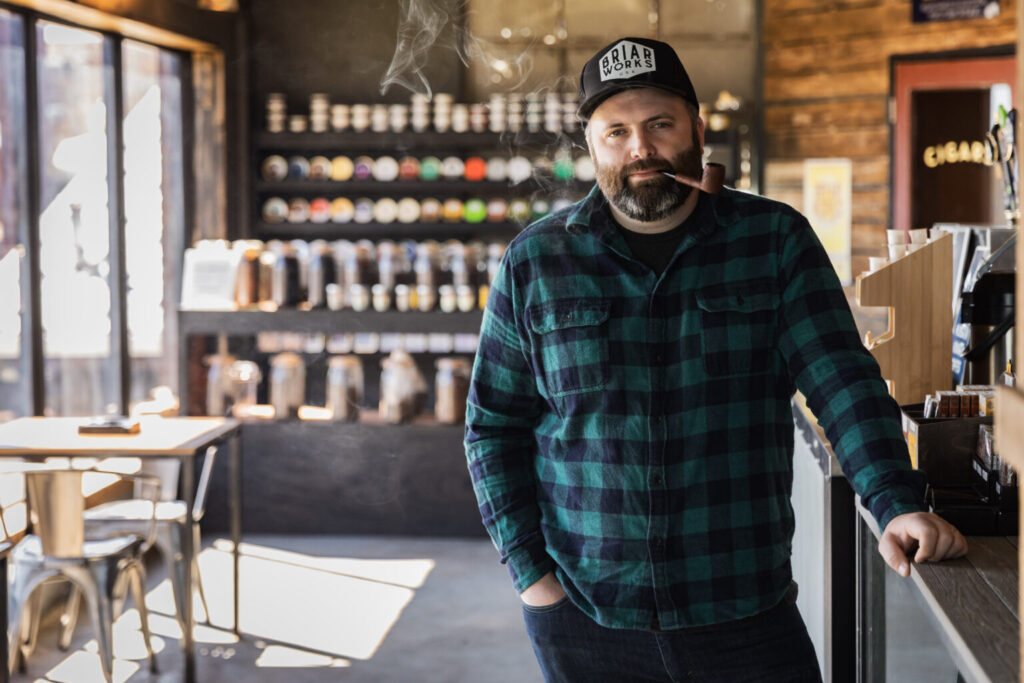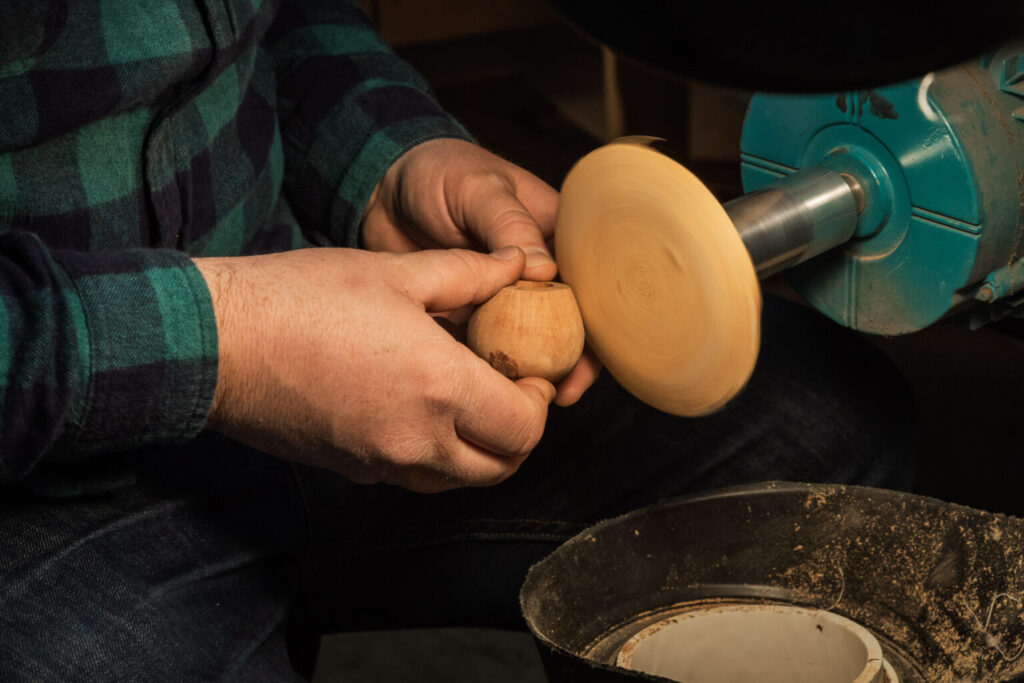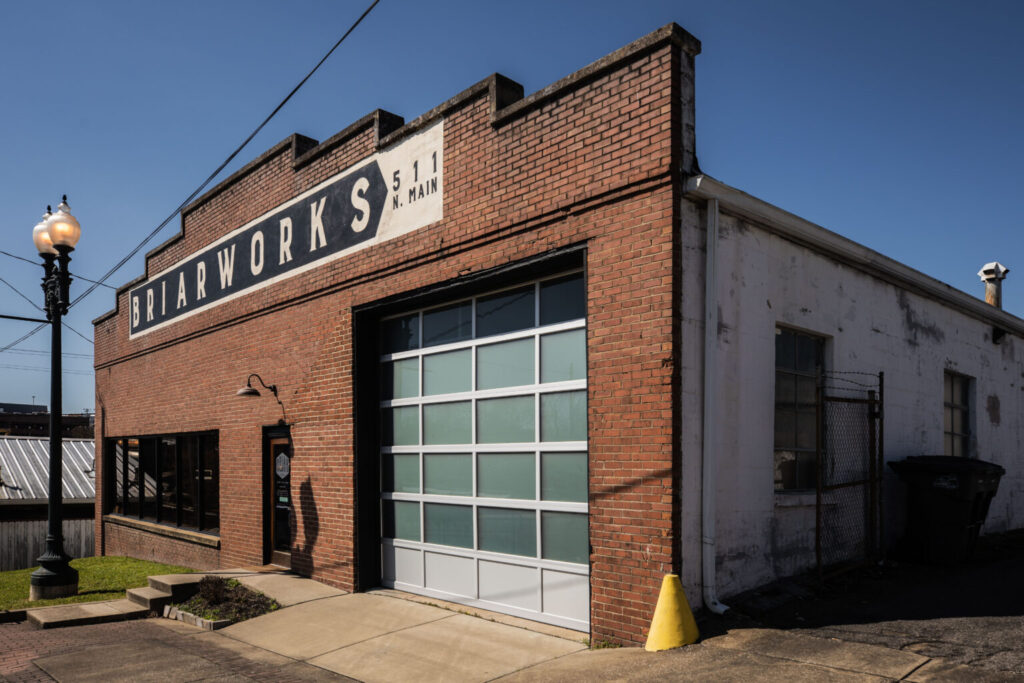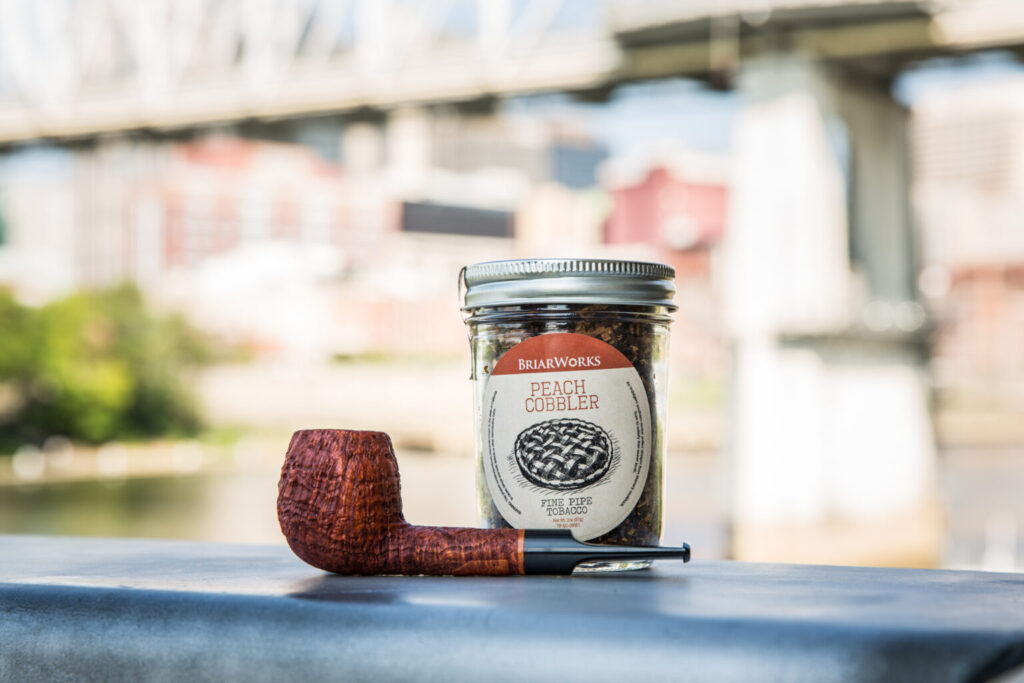Most brick-and-mortar tobacco shops featuring a pipe presence keep themselves pretty well stocked with midgrade factory pipes, usually from Europe, and with basket pipes and corncob pipes for the budget-conscious pipe smoking newcomer. Maybe a few high-dollar handmades are sprinkled in from time to time. I have previously written columns in this space extolling the retail virtues of ultra-inexpensive corncobs and of high-grade handmades. Beyond those extremes on the price continuum, however, there exists an option distinct from the commonplace factory midgrade: serial-produced, artisan-finished pipes that straddle the categories of factory and handmade product. Among shops turning out such creations, BriarWorks in Columbia, Tennessee, is arguably making the biggest splash.
The BriarWorks idea of developing a business by crafting very high-quality pipes at affordable prices using Computer Numerical Control machining, or CNC, and hand finishing was originally the vision of pipemaking virtuoso Todd Johnson, who in 2013 partnered with fellow pipe artisan Pete Prevost to launch BriarWorks in Nashville, Tennessee. Johnson is no longer actively involved in the business, though he continues as a co-owner. Today Prevost is president of BriarWorks, where, having moved operations to Columbia, he labors alongside four other artisans of excellent reputation—Micah Redmond, Sam and Emily Adebayo, and Bill Shalosky—to produce about 5,000 pipes a year. Their pipes typically command retail prices in the $100 to $150 range. But for that modest investment, buyers get pipes of impeccable quality, each one having been nurtured through the entire finishing process by one dedicated artisan.
Prevost says: “When we started the factory in Nashville in 2013 our goal was to just be a factory that made the best pipes. We weren’t trying very hard to build relationships with stores, or even with consumers. Making quality pipes was our only focus. I feel like we did that, but as time goes by, things change. Goals change.”

Nowadays, BriarWorks is very much interested in building relationships with brick-and-mortar merchants, and they don’t mind starting new accounts small. “One thing that we have always done for stores is not require any minimum order,” Prevost says. “We have opened new accounts with stores with as little as three pipes. We believe in our product. We don’t need to force a large order on a store to get some quick money up front. We believe that with good knowledge and education, the pipes will sell. We would never want to hinder another store by making them overinvest in inventory. The nice thing about working with us is that there isn’t a set book of rules. Every store’s situation is unique, and we will always try our best to accommodate each retailer.”

Prevost recognizes the pull that the cigar trade exerts on tobacconists. “For good reason many stores focus more on building a large humidor of cigars because they are easy to sell, and for the consumer, they are also easier to smoke,” he says. “A lot of people who enjoy cigars also love the idea of enjoying a pipe, but there is more work involved, and there are things you have to learn or get good at to have a good experience. That is where a major drop-off happens. Many people never try a pipe because they don’t want to look like an amateur, or maybe they try it once or twice, but have a bad experience.” This is where a knowing and caring retailer can make all the difference, teaching newcomers the intricate ways of the pipe. It is a learning process that is immeasurably easier when the customer is holding a pipe in his hand that he can be truly proud of, one that both looks good and performs. This, in a nutshell, is the BriarWorks bailiwick.
Prevost says: “I think that kind of individual attention is what this hobby needs more of to really thrive. We have to get rid of the myths and rules that seem to be associated with a good pipe smoking experience and take the time to educate each person who is interested in pipe smoking. Of course, it’s more work to sell a pipe than it is to sell cigars, but looking at it from a brick and mortar’s perspective, if you take 10 minutes to talk pipes with someone, go over the different types of pipe tobaccos, show them how to properly pack it, how to light it, and how to enjoy it, chances are that isn’t the only pipe they are ever going to buy. Many of the customers that come into our retail store and try a pipe end up adding several pipes to their collection over time.”

BriarWorks also offers a business model that allows the pipe retailer to stay closely connected to the manufacturer. “If you own a store and a customer asks you a question about a pipe you can’t answer, or about one of our pipes in particular, you can go straight to the source,” says Prevost. “The same goes when you encounter an issue or need something repaired. Maybe you have a selection of our pipes on hand, but the customer wants a different finish or stem color for the shape they like. Chances are, we can easily accommodate that request and quickly ship what they want to you, and that customer can be enjoying it within days.”

Prevost takes great pride in the operation that BriarWorks is growing into. “We have some of the most talented handmade carvers in the world working here,” he says. “It is one of the things that really sets BriarWorks pipes apart. The quality and attention to detail is on another level, just because of the hands in which they are being finished. Unlike a lot of factory production, we don’t have workers who are trained just to perform one or two tasks on a pipe that is being made. Instead, after a bowl is roughed out on one of our machines, one carver will take it from that point all the way to completion. Nothing gets overlooked that way, and we can maintain the same level of quality that you would find in a fully handmade pipe.”
The BriarWorks model seems to fit well with a larger consumer movement toward more custom-crafting in a wide variety of retail products, from craft beers to local coffee roasters and custom clothing design. Merchants can expect keystone pricing, and are invited to call on BriarWorks to talk particulars with sales and customer service specialist Brad Emery at 931.223.8985.

